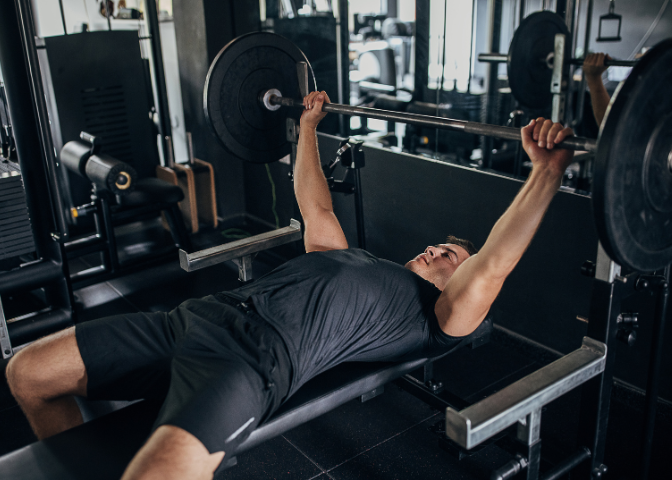-
Ingredient SolutionsQuickly narrow your search. Browse products in our sortable catalog. View Catalog
-
ApplicationsQuickly narrow your search. Browse products in our sortable catalog. View Catalog
-
ResourcesRecently Posted
-
PLT People & Planet
-
About
Our international network, passionate team of experts and extensive industry knowledge is what sets us apart.
 Seth FlowermanCEO
Seth FlowermanCEO
A Botanical Extract Blend of Mangifera Indica and Sphaeranthus Indicus Combined with Resistance Exercise Training Improves Muscle Strength and Endurance Over Exercise Alone in Young Men: A Randomized, Blinded, Placebo-Controlled Trial



Citation: Salter D, Swamy S, Salis KM, Deep DK and Nadig P (2024) A botanical extract blend of Mangifera indica and Sphaeranthus indicus combined with resistance exercise training improves muscle strength and endurance over exercise alone in young men: a randomized, blinded, placebo-controlled trial. Front. Nutr. 11:1393917. doi: 10.3389/fnut.2024.1393917
Abstract
Background: Resistance exercise training (RET) is used to improve muscular strength and function. This study tested the hypothesis that RET alongside daily supplementation of a Sphaeranthus indicus and Mangifera indica extract blend (SMI) would augment bench press (BP) and leg extension (LE) strength and repetitions to failure (RTF) compared to RET alone.
Objective: This randomized, double-blind, placebo-controlled study investigated the ability of two doses of SMI in conjunction with 8 weeks of RET to augment changes in muscle strength and endurance when compared to non-supplemented, exercising-only, placebo groups.
Methods: Ninety-nine men (age 22 ± 3) completed the trial after randomization into one of four groups: (A1) 425 mg SMI plus one RET set; (A2) 850 mg SMI plus one RET set; (P1) placebo plus one RET set; and (P2) placebo plus two RET sets. RET sets were 6–8 BP and LE repetitions at 80% of a progressive one repetition maximum (1-RM), performed 3x/week for 8 weeks. Strength and RTF were evaluated at baseline and days 14, 28, and 56 while serum values of total testosterone (TT), free testosterone (FT), and cortisol (C) values were evaluated at baseline and day 56.
Results: RET significantly (p < 0.05) increased 1-RM, RTF, and T measures above baselines regardless of group assignment, but the increases were greater in the supplemented groups. At week 8, A1 bench pressed more than P1 (71.5.5 ± 17.5 kg vs. 62.0 ± 15.3 kg, p = 0.003), while A2 pressed 13.8 ± 3.0 kg more (95% CI 5.7–21.8, p < 0.001) than P1 and 9.9 ± 13.0 kg more (95% CI 1.7–18.2, p = 0.01) than P2. Also at week 8, the mean LE 1-RM of A1 (159.4 ± 22.6 kg) and A2 (162.2 ± 22.9 kg) was greater (p < 0.05) than that of P1 (142.2 ± 25.6 kg) and P2 (146.5 ± 19.7 kg). Supplementation improved RTF, TT, and FT values over those measured in exercise alone (p < 0.05), while C levels in A2 (9.3 ± 3.8 μg/dL) were lower than P2 (11.7 ± 3.8 μg/dL, p < 0.05).
Conclusion: Daily supplementation with SMI was well tolerated and may help optimize muscle adaptive responses to RET in men. Results suggest that daily supplementation with either 425 or 850 mg of SMI was well-tolerated and accentuated muscle adaptation when used by healthy young men participating in a progressive 8-week RET program. The supplemented groups showed significant increases in muscular strength and endurance, increased T, and reduced C in comparison to the two placebo groups, one performing a matching number and the other performing double the number of RET sets.













